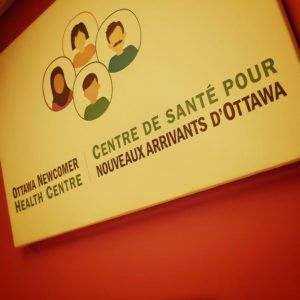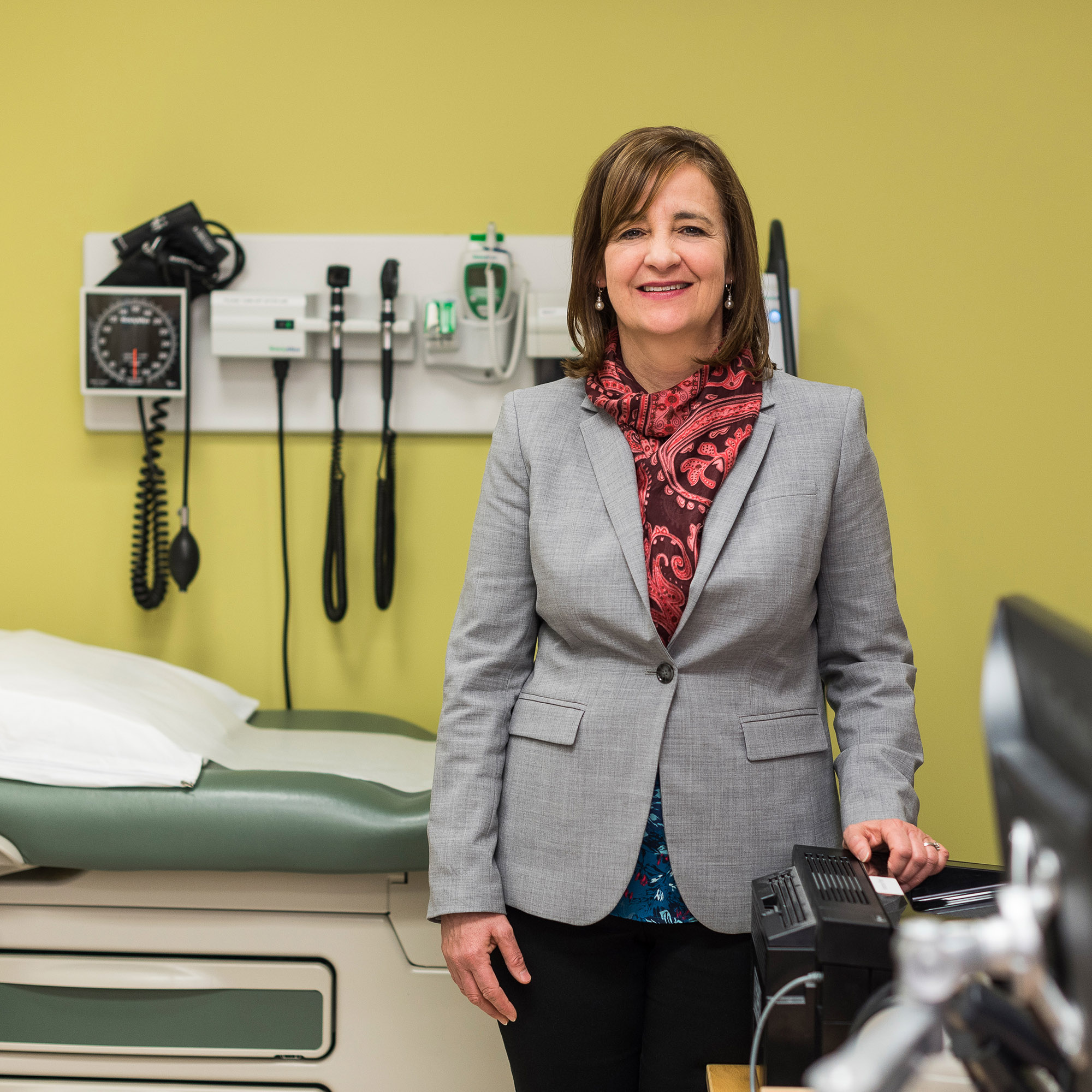Paula Day Nurse Practitioner | Ottawa Newcomer Clinic | Somerset West Community Health Centre
—
“We worked together to make a plan.”

One of the biggest challenges in the first weeks of the Syrian resettlement project was getting health care to the new arrivals.
“We realized quite quickly that we needed help to deal with so many newcomers,” says Paula Day, a nurse practitioner who has been working at the Ottawa Newcomer Health Centre for almost a decade.
Before any of the Syrians arrived, local immigrant health experts, physicians, ambulance workers, hospitals, Community Health Centres, the Bruyère Family Health team and Ottawa Public Health created a Health Task Force under Refugee 613 to plan the medical response. Although at first the plan was to refer the newcomers to primary care clinics, things changed rapidly once the first groups landed in Ottawa.
After years of living in temporary housing in the Middle East and with the stress of the long journey to Canada in the middle of winter, many of them needed medical care right away, in particular the government-assisted refugees (GARs). Arriving in waves at four reception centres (three of which were local hotels), they needed care for everything from colds and flu to more serious chronic illnesses.
“We decided to set up health clinics right in the hotels,” says Paula. “There were people with viral illnesses and kids with ear infections. These were things that could be managed in a small clinic setting.”
The Ottawa Newcomer Clinic normally sees about 500 Government Assisted Refugee patients per year.
Partnerships across the city
The first temporary clinic was on the 11th floor of the main hotel, a busy space alongside an office for settlement workers providing orientation services and a play group for kids. “That was one of the positive things about the hotel,” says Paula. “It allowed people to meet each other. It was nice to witness friendships forming. For the kids to start to make friends early on was a nice positive thing.”
Early on, the task force organized a one-day course to help health professionals get up to speed on the skills needed to deal with newcomers. “People were sharing stories about their experiences. Even just some of the basics about how to work with interpreters — to learn from others was invaluable.”
“Some people had chronic illnesses like hypertension or diabetes, but they only came with a very limited supply of their medication. So, we partnered with a pharmacy,” explains Paula. “They had an Arabic-speaking pharmacist on staff. I could explain the medication through a cultural interpreter, but it was even more helpful to have it written in Arabic.”
“One thing we weren’t prepared for was that a lot of children had disabilities,” adds Paula. It’s one result of Canada’s policy of prioritizing the most vulnerable refugee families for resettlement. “We connected quite quickly with CHEO, as some patients needed appointments with specialists. Because we were connected to all the community health centres, when we saw someone at a hotel that needed a more involved assessment, we could refer them to an appointment. Everyone just worked so well together.”
Despite the challenges, “I was impressed, as I always am, by these newcomers’ courage, resilience and hope for the future” Paula says. “I felt a sense of pride that we, as Canadians, opened our hearts to welcome people into our communities.”
—
Many local health organizations collaborated to provide primary and specialist care to the Syrian arrivals and other newcomers, led by the following agencies.
Bruyere Academic Family Health Team
Champlain Local Health Integration Network
Children’s Hospital of Eastern Ontario
Coalition of Community Health and Resource Centres Ottawa
Ottawa Children’s Treatment Centre
Ottawa Newcomer Health Centre
Ottawa Public Health





